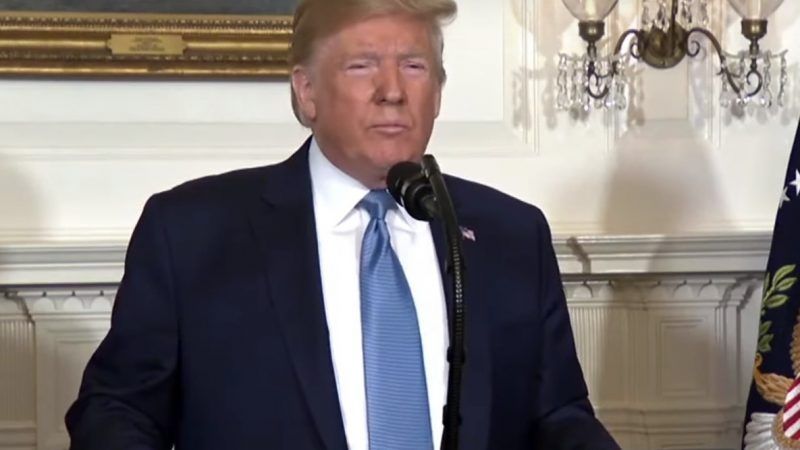'Red Flag' Laws Leave Gun Owners Defenseless
The Trump-endorsed response to mass shootings gives due process short shrift.

Responding to the mass shootings that took 22 lives in El Paso and nine in Dayton over the weekend, President Donald Trump said it should be easier to confiscate people's guns when they are deemed a threat to others. That prescription may or may not prevent any murders, but it will certainly hurt many innocent Americans by depriving them of their Second Amendment rights.
"We must make sure that those judged to pose a grave risk to public safety do not have access to firearms, and that, if they do, those firearms can be taken through rapid due process," the president said on Monday. "That is why I have called for 'red flag' laws, also known as extreme risk protection orders."
Seventeen states and the District of Columbia have adopted such laws, most of them since the February 2018 massacre at a high school in Parkland, Florida. Although preventing mass shootings is the goal emphasized by advocates of red flag laws, data from Indiana and Connecticut, the first two states to enact them, show they are mainly used to protect people from their own suicidal impulses.
The evidence on whether they succeed in doing that is mixed, and so far there's no firm evidence that red flag laws prevent homicide. One thing is clear: Taking away people's guns based on predictions of what they might do with them raises thorny due process issues.
Despite the talk of "extreme" or "grave" risks, red flag laws typically refer to a "significant" risk, and what that means is anybody's guess. Given the imagined stakes, judges tend to err on the side of granting orders that bar people from possessing guns.
In Florida and Maryland, both of which enacted red flag laws soon after the Parkland shooting, initial orders, which are issued before the "respondent" has a chance to respond, are almost never denied. They last up to two weeks in Florida and up to a week in Maryland, where they can be extended for up to six months.
At the next stage, when the respondent finally gets a hearing, renewable orders lasting up to a year are issued 62 percent of the time in Maryland and 95 percent of the time in Florida. The difference in approval rates may have something to do with the fact that Florida allows petitions only by law enforcement agencies, while Maryland opens the door to relatives, intimates, cohabitants, physicians, and mental health specialists.
Florida nevertheless allows judges to consider any evidence they deem relevant, and its "significant danger" test is inherently vague, notwithstanding its "clear and convincing" standard of proof. Some states are even looser, requiring only "a preponderance of the evidence," meaning any likelihood greater than 50 percent that the respondent poses a "significant" risk.
The upshot is that people can be stripped of the constitutional right to armed self-defense even when they almost certainly would not have used a gun to harm themselves or anyone else. "All the pressure is on the other side," says Orlando attorney Kendra Parris. "There's absolutely no downside to just going ahead and issuing the order."
Parris has represented a college student who did not own any guns, had no history of violence, and had never threatened anyone but who nevertheless was an early target of Florida's red flag law because he said some stupid things about mass shootings on Reddit. Another client was slapped with a gun confiscation order because he criticized teenaged gun control activists online and posted a photo of an AR-15 rifle he had built.
David Kopel, a gun policy expert at the Independence Institute in Denver, thinks properly designed red flag laws can have a positive impact. But he emphasizes the importance of procedural safeguards that states have largely failed to adopt.
"It's a great idea on paper," says Dave Workman, senior editor at the Second Amendment Foundation in Bellevue, Washington. In practice, however, "you're guilty until you prove yourself innocent."
© Copyright 2019 by Creators Syndicate Inc.


Show Comments (100)